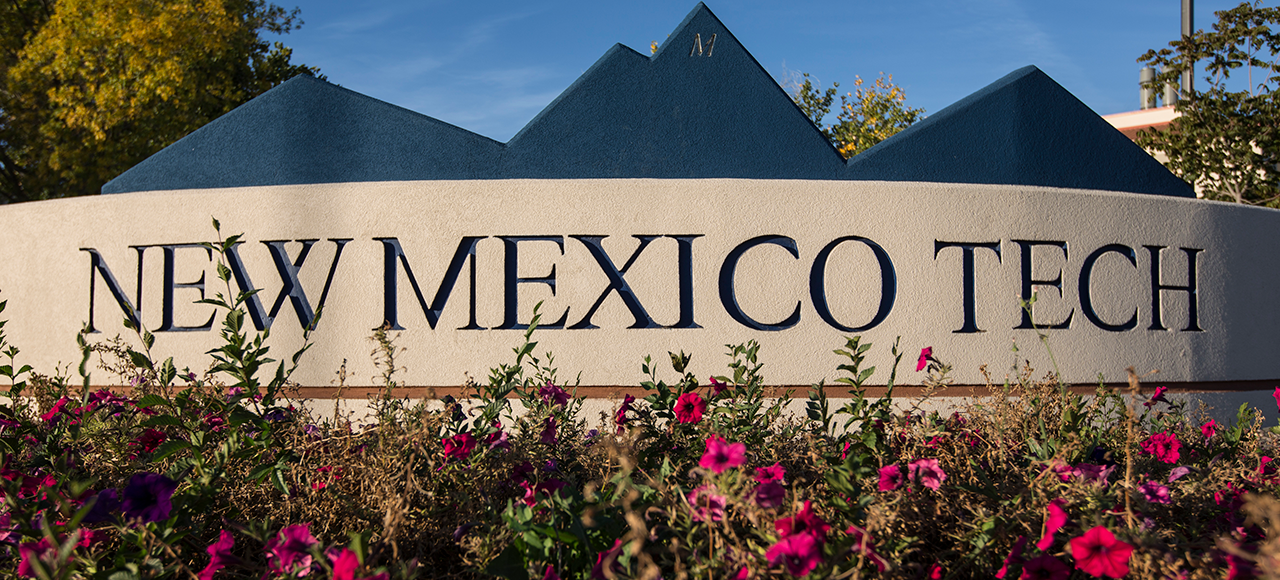
Hydrology
Dan Cadol
Dr. Dan Cadol is an assistant professor of hydrology in the Earth and Environmental Science Department. He earned his bachelor’s at Whitman College (Wash.), followed by his master’s and Ph.D. at Colorado State University.
Cadol’s research projects have included large wood dynamics in the headwater streams of Costa Rica, non-native tree invasions in Canyon de Chelly, Arizona, and the freshwater tidal marshes on the Potamac River in Virginia.
I am a hydrologist with research interests at the intersection between ecosystems and the hydrological cycle. This includes the study of the hydraulic effects of vegetation in flow, sedimentation and scour around vegetation, controls on the rate and temporal distribution of water extraction and use by plants by means of evapotranspiration, and the transport and fate of vegetative material such as large woody debris within the fluvial network. As we work to make the most of the limited water available in semi-arid regions, ecohydrology can provide a fresh perspective on habitats, sustainability, and the potential for conservation.
Jesus Gomez
Dr. Jesus Gomez is an assistant professor of hydrology in the Earth and Environmental Science Department. He earned his bachelor’s in civil engineering from the National University of Colombia at Medellin. He earned three degrees from New Mexico Tech: a master’s in hydrology in 2008, a Ph.D. in Earth Sciences in 2013 and a master’s in applied mathematics in 2016. He served as a post-doc with the U.S. Geological Survey in Maryland before returning to Tech in 2015.
The focus of his research is hydrology, geomorphology, and biogeochemistry of landscapes and river systems and their links with humans and ecosystems.
- Groundwater-surface water interactions
- Hydrogeology
- Watershed Hydrology
- Analytical and numerical modeling
- Data mining and assimilation
I study the movement of water, solutes, and energy through landscapes and river systems. Most of my current research focuses on the interactions between surface water and groundwater at multiple temporal and spatial scales, ranging from small river bedforms to continents. This work combines numerical modeling, data mining and assimilation, and a whole lot of field and laboratory experiments.
Andrew Luhman
Dr. Andrew Luhman is an assistant professor of hydrology in the Earth and Environmental Science Department. He earned his bachelor’s from Wheaton College in Illinois in 2006 and his Ph.D. from the University of Minnesota in 2011.
My primary research interests include hydrogeology and geochemistry. I have worked on research problems at a range of scales while employing fieldwork, modeling, laboratory experiments, and many kinds of analytical equipment. I enjoy working on problems relevant to society while exploring basic scientific questions.
I am interested in flow and transport through aquifers, and I have focused on water temperature as a tracer in karst aquifers. I am also interested in fluid-rock interaction, and my efforts have focused on running laboratory experiments at elevated temperatures and pressures to simulate carbon sequestration settings and serpentinization systems.
- Hydrogeology
- Geochemistry
- Modeling
- Aquifer flow and transport
- Sinkholes
- X-ray computer tomography
Mark Person
Dr. Mark Person is a professor of hydrology in the Earth and Environmental Science Department. He earned his bachelor’s at Franklin and Marshall College in 1980, his master’s at New Mexico Tech in 1985, and his Ph.D. from Johns Hopkins University in 1990.
My research is currently centered on five topics:
- Climate Change Hydrogeology
- Basin-Scale Hydrogeologic Modeling
- Fault Hydrogeology
- Geothermal Systems
- The Role of Groundwater in Geologic Processes
Most of these topics consider groundwater flow deep within the Earth’s crust and must consider a variety of fluid flow impelling mechanisms. A lot of these projects involve field work. I try to involve both graduate students and undergrads in all of my field campaigns.